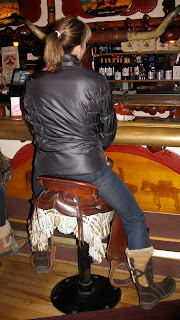I've been such the lame blogger lately! I've seen so many interesting things that I keep filing away as blog topics, but no blogging occurs. It's been a crazy few weeks with my dog eating raisins (note to self: conduct research on why dogs eat things which make them die a slow painful death without $500 of medical intervention), professional commitments (Dr. Dork conferences), and then amidst it all, there's my feeble attempts to combat my own personal suburban sprawl (aka, my ever-growing back side).
Whenever I get busy, I turn to music to alleviate that suffocating feeling. Here's what I've been singing:
I'm busy busy dreadfully busy
You've no idea what I have to do.
Busy busy shockingly busy
Much much too busy for you.
It's a Veggie Tales classic. I think it was #1 on the Vegetable Pop Charts-Cruciferous and Leafy in the late '90s.
2. There is no substitute for a healthy diet. I hate even saying this because it's an eye roller...who likes to hear this? But if you look at the science, people that eat more vegetables and other plant-based foods and are physically active are healthier and live longer. It doesn't matter how many smoothies or cleanses or herbs that you take. Our bodies are pretty smart after all these years and they are not fooled easily.
3. More is not better when it comes to vitamin, mineral, and other supplements. In fact, more can be bad. I was at a Dr. Dork conference last month and there was a lot of concern over people's vitamin and mineral intakes. For example, too much folic acid has been shown to increased risk for breast cancer. Similarly, calcium supplements have been linked to increased risk of heart attacks. Vitamin E supplements have also been linked to an increased risk of heart disease. And here's the important point...it doesn't matter if the vitamin or mineral is a chelated form, or that it's from some mine in the ocean, or that it's a concentrated form derived from vegetables...your body doesn't care. They can all be equally harmful. The supplement companies don't want you to know this and often, they will mis-represent the scientific evidence. Sometimes they don't disclose that a study on their product was done in a test tube or rat. Other times, they talk about how people in a certain tribe or part of the world have been so healthy for GENERATIONS because of this secret, special product. It seems to get crazier each year.
For most adults (19-60ish years of age), most experts recommend a basic multi-vitamin most days of the week. I eat my kid's generic chewables when I remember (3-4 days/week) and that works out just fine. The best place to get information on how much of a certain vitamin or mineral you need is from the Institute of Medicine. They review the scientific evidence on a regular basis and publish guidelines. Here is the link.
And happy Spring everyone!!!










